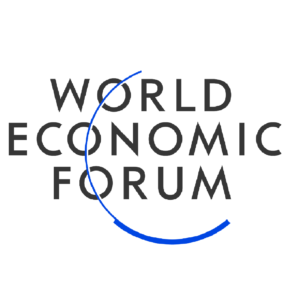- No effective way to control with ubiquity of knowledge, machines and low entry barriers
- Technology is neutral but making humans responsible remains challenging
- Ethics and standards of developers key to good governance
- For more information about the meeting, please visit: http://wef.ch/amnc18
Tianjin, People’s Republic of China, 18 September 2018 – The governance of dual-use technologies remains challenging as knowledge and machines become more ubiquitous and barriers to entry continue to fall, according to panellists at the World Economic Forum’s 12th Annual Meeting of the New Champions, which opened today in Tianjin.

The question of how to tap the good from dual-use technologies while limiting the bad uses that can be exploited has become more complex with advanced technologies such as artificial intelligence (AI), robotics and quantum computing. Dual-use technologies are those which are developed for civilian use but can be repurposed for military applications.
The session was moderated by Nancy Scola, Senior Technology Writer, Politico. Kori Schake, Deputy Director-General of the International Institute for Strategic Studies (IISS) in the United Kingdom, said she is not hopeful, pointing to the ubiquity of knowledge and machines, and the low barriers to entry. “From the governance perspective, this ship has sailed; there is no effectual way to ban or limit these kinds of technologies,” she said.
David Shim, Associate Professor in the Department of Aerospace Engineering at the Korea Advanced Institute of Science and Technology (KAIST), noted that views are divided among United Nations members on what should be done to control the relentless march of AI technology. There appears to be more fear about AI development despite research showing that, statistically, machines make better decisions than human beings. The technology is neutral, he said. “Machines don’t care if this is for saving people or killing people.”
Making the humans who develop and use the machines responsible may be one way to govern their use. But, in an era when machines are controlled by algorithms and their processes and speed of decision-making are incredibly fast and complex, this is easier said than done. And there is the issue of how to hold one party responsible when there are usually a multiple number of stakeholders and multiplicity of technologies involved.
“The only effective way (for governance) is the ethics of professional standards of developers,” said Schake.
The World Economic Forum’s 12th Annual Meeting of the New Champions is taking place on 18-20 September in Tianjin, People’s Republic of China. Convening under the theme, Shaping Innovative Societies in the Fourth Industrial Revolution, more than 2,500 business leaders, policy-makers and experts from over 80 countries will participate and explore more than 200 sessions over the three days of the meeting.
The World Economic Forum, committed to improving the state of the world, is the International Organization for Public-Private Cooperation.
The Forum engages the foremost political, business and other leaders of society to shape global, regional and industry agendas. (www.weforum.org).
